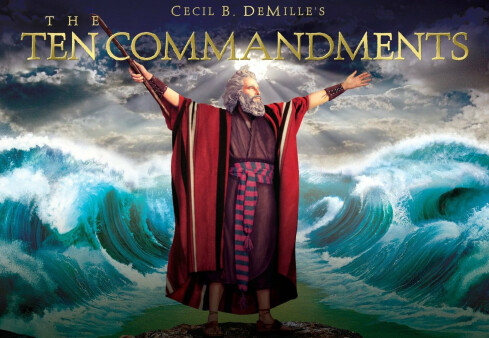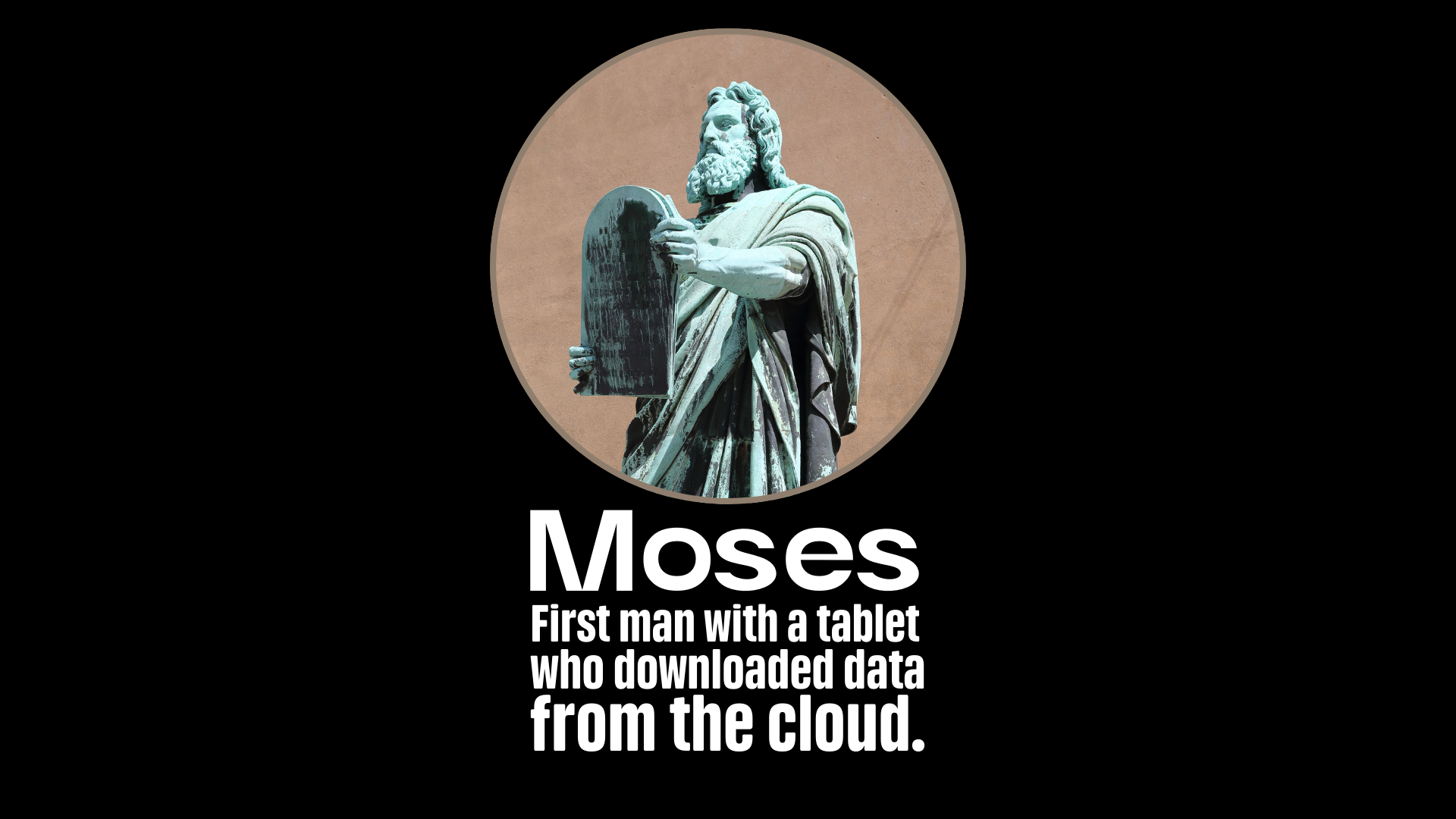
Genesis 21 – Exodus 21
Our readings have covered a tremendous amount of ground these past two weeks. Many(and the most famous!) Bible stories are found right in these chapters. We begin with the promised son of Abraham and Sarah— of my favorite, Isaac, whose name means “God has given me laughter.” In Isaac, God had turned Sarah and Abraham’s skeptical laughter into laughter of joy.
Of course, Isaac’s birth didn’t exactly bring peace and harmony to Abraham’s family. Sarah and Hagar continued to be at odds over the position of their sons. Because Hagar was a servant and was on the wrong end of the power dynamics, she and her son Ishmael were sent away and almost died in the desert. But God saw them and rescued them, having promised Hagar that her son of Abraham would also become a great nation. The descendants of Ishmael and Isaac war with each other in almost every generation, but neither are utterly wiped out. God still leaves room for peace and reconciliation.
I mentioned that there were several famous Bible stories in these two weeks’ worth of reading, and the first is known as The Binding of Isaac. Genesis 22 says that God tested Abraham by telling him to take his son, his only son (not exactly true), and sacrificing him as a burned offering. Abraham got up early the next day in obedience, packed up Isaac, some supplies, and servants, and hit the road. When he got to the place where they offered sacrifices to God, Abraham bound Isaac, an adolescent by now, and laid him on the altar. But before he could harm his son, an angel of God appeared and intervened. He commanded Abraham to let him go and instead sacrifice a ram that had rather conveniently gotten caught in the thicket. God reiterates the promise of a great nation and a blessing upon Abraham in response to his faithfulness. This is a hard story, I admit. Now that I have my own children, who are my own little miracles after a personal battle with infertility, I can’t imagine being in this position. Maybe that’s a sign of a flaw in my own faith. Or maybe the point of this story is to highlight the distinction between the nation God would build and any other tribe or nation around them. Human sacrifice, indeed child sacrifice, was not uncommon in the Ancient Near East. But that has never been part of God’s plan. God, Yahweh, El Roi, Jireh would NEVER ask us to sacrifice someone else – much less a child – to prove our faith. In contrast, God commands the chosen people to take care of the most vulnerable among them.
The stories of Abraham and his sons continue. Isaac and Ishmael both grow, marry, and have children. We first meet Isaac’s wife, Rebekah, at a well. Together, they have twin sons who never quite get along: one a quintessential outdoorsman, the other a quiet schemer. Jacob and Esau carry on the biblical theme of battling brothers, manipulating and out-maneuvering one another at every occasion. Eventually, the tension becomes so much that Jacob is sent away to his Uncle Laban’s house, where he married two sisters and spent 14 years at his father-in-law’s house. Eventually, Jacob and Esau reconcile, and it’s during this story that Jacob meets God by the river and wrestles with an angel. No doubt this embodies a wrestling of the wills: Jacob’s own will vs. God’s. Jacob doesn’t quite concede, but he does leave the wrestling match marked and changed. The angel gives Jacob a new name: Israel, “the one who wrestles with God.” And like Jacob, the people of Israel would carry on the battle of the wills between their nation and their Creator in every generation.
Jacob’s family grows. His first wife, Leah, has 6 sons and a daughter named Dinah. Her sister Rachel (Jacob’s favorite wife) finally has a son named Joseph, who immediately becomes Jacob’s favorite child. The sisters give their maidservants to Jacob to be wives, and 4 other sons are added to the family. Finally, Rachel has the last son, Benjamin. She dies during his childbirth and leaves Jacob broken-hearted.
In the meantime, Joseph grows into a strong and good-looking teenager, with as much compassion and maturity as you would expect from your average, spoiled 17 year old. He tattles on his older brothers while they’re working and tells them about dreams he had where he was in charge, and they were bowing down to him. Jacob only makes the situation worse by showing him overt favoritism, including gifting him a beautiful and expensive coat. The other sons of Jacob have had enough, and they plot to get rid of Joseph once and for all. One day, when Joseph was visiting his brothers tending the herds, they attacked him, sold him into slavery to some Ishmaelites, and smeared his coat with blood to show their father and prove Joseph was dead.
But God is not finished with Joseph yet. Even though Joseph is enslaved and taken to Egypt, God continues to show him favor. He’s placed in a prominent household and gains his master Potiphar’s trust. But the wife of Potiphar tries to seduce this attractive young man, leaving Joseph to flee for his life. In the end, Potiphar’s wife lies about Joseph to her husband, and he is sent to prison. Again, God lifts him up. Joseph, once a dreamer in his own right, interprets the dreams of his fellow prisoners so accurately that one day, when the Pharaoh begins having disturbing dreams, Joseph is the one summoned to provide wisdom and interpretation. Pharaoh’s dreams foretell a famine, and because of Joseph’s divine ability, he once again is placed in a seat of prominence – 2nd over all the land of Egypt. It’s from this seat of power that Joseph reunites with the brothers that once tried to end his life. Instead of retribution (although, maybe a little retribution with the whole back and forth, “without Benjamin/with Benjamin”), Joseph offers forgiveness. He and his entire family are reunited once again.
The immediate families of Abraham, Isaac, and Jacob are all dead, but their descendants continue to thrive in Egypt. The Israelite population grows so large that the new Pharaoh, king of Egypt, is threatened by their power. He arranges for them to become slaves, crushed under the weight of endless work and the merciless hands of their taskmasters. For hundreds of years, they have been destined to work with no relief. He recruits soldiers to find every male child under the age of two and put them to death.
But God is not finished with the “ones who wrestle with God.” A child is born to a Hebrew couple who knows he is special. They hide him away until they no longer can and do not know what else to do; hisd, mother, Jochebe sends him down the Nile river in a woven ark. The baby’s sister, Miriam, follows and watches from the riverbanks to ensure his safety. Miraculously, it’s the daughter of the Pharaoh – the same Pharaoh who wanted this and all Hebrew boy babies dead – and she pulls him up out of the water, takes him as her own and calls him Moses.
Moses is one of the most fascinating and pivotal stories in all of the Bible. And I don’t just say that because Charleton Heston, Yul Brenner, Anne Baxter, and some serious 1st generation CGI won me over in the cinematic masterpiece The Ten Commandments. Moses was born a slave but grew up a prince. He was both a murderer and a liberator. He had a speech impediment and a major case of imposter syndrome, but God chose him to be Israel’s deliverer, to be the one who would go and bring Israel out from under the oppression of Egypt. Moses found himself drawn aside and called into the saving work of the LORD by a voice from a burning bush. When Moses doubted his own ability, God sent in reinforcements in his brother Aaron (and his sister Miriam). When Moses wasn’t sure who to say was sending him, the God who had always been gave a new introduction to Moses: ‘Simply say I AM sent you.” This is the God who always was and always is. This is the God who will be what will be. This God put the world into motion and hasn’t stopped searching for a relationship with creation since. As the saying goes - God doesn’t call the equipped, God equips the called.
The story of Moses in Egypt is so exciting and bewildering, and it’s just the beginning of Israel’s story. When Pharaoh refused to let God’s people worship in the desert, it triggered a series of plagues: The Nile turned to blood, an invasion of frogs, lice, and insects. The people and animals were afflicted with sores and blisters, hail and fire rained down from heaven, locusts swarmed, the darkness covered the land, and finally, the death of the firstborn. Someone asked, “Are these even real?” This is a valid question. Certainly, God is able to act in miraculous ways. Additionally, these afflictions could be explained by naturally occurring events. But these plagues are recorded to make a very specific theological point: that the LORD is greater than any other god. Each plague is a direct assault against an Egyptian deity. There was the god of the Nile, the goddess of fertility – represented as a frog, and the gods of the earth, time, and air – represented by lice, flies, and cattle. Even the sun was worshiped as the god Ra. One by one, God uncovered the powerlessness of these so-called gods and revealed that the LORD had authority over all of them. The death of the firstborn is perhaps the most troubling. In Egypt, the Pharaoh was considered god in human form. His son, his firstborn, would’ve been heir to the throne and in this divine lineage. It was a fatal blow in more ways than one. God protected the Hebrews by giving them the first Passover instructions. With blood painted over their doorsteps, they were to eat the sacrificed lamb with unleavened bread, dressed and ready to run. The angel of death would “pass over” the doors covered by the blood.
This Passover deliverance became the foundation for all faithful Jewish people. It is marked each year around Easter with a festival meal. Being slaves who were freed remains one of the most powerful theological identifiers for the Judeo-Christian faiths. In the story of Exodus, we remember that when the Israelites were helplessly oppressed, God exercised power over the worst the pagan world had to offer and brought them out of slavery. This is meant to be the story of Jesus as well – the new Moses, the great Deliverer who brought us out of slavery to sin and to spiritual death while facing the worst that humanity had to offer on the cross. In the beginning and in the end – God is the one in charge.
Now that the Hebrews are beginning their journey to the promised land, God doesn’t send them out without a guide. God gives them the 10 Commandments, as well as 603 other commands so that they might begin living as the chosen people, called to be a light unto the world.

The 10 commandments are rules to live by; they govern our relationship with God (1-4) and our relationship with others (5-10). But the remaining 600+ rules can seem strange, often comical, and sometimes downright cruel. Remember that this was the earliest community of faith. They were learning as much as they were leading. They did their best to understand God’s law and live it out, but the cultural translation of many of these laws is too obscure for us to understand. We must always look at these through the law of love that Christ presents to us in the New Testament. Do we still follow all 613 laws today (if you eat shrimp or pork or wear a polyester blend, the answer is no.)? But it still benefits us to read and wrestle with the ancient understandings of our ancestors so that we might learn from them and grow.
If you haven’t had a chance to listen to our podcast, It’s Not Complicated, you can do so here (or anywhere you get your podcasts). Most importantly, don’t forget to read your Bible! And be blessed.
Grace and peace,
Jennie
(Login/Register to leave a comment)



